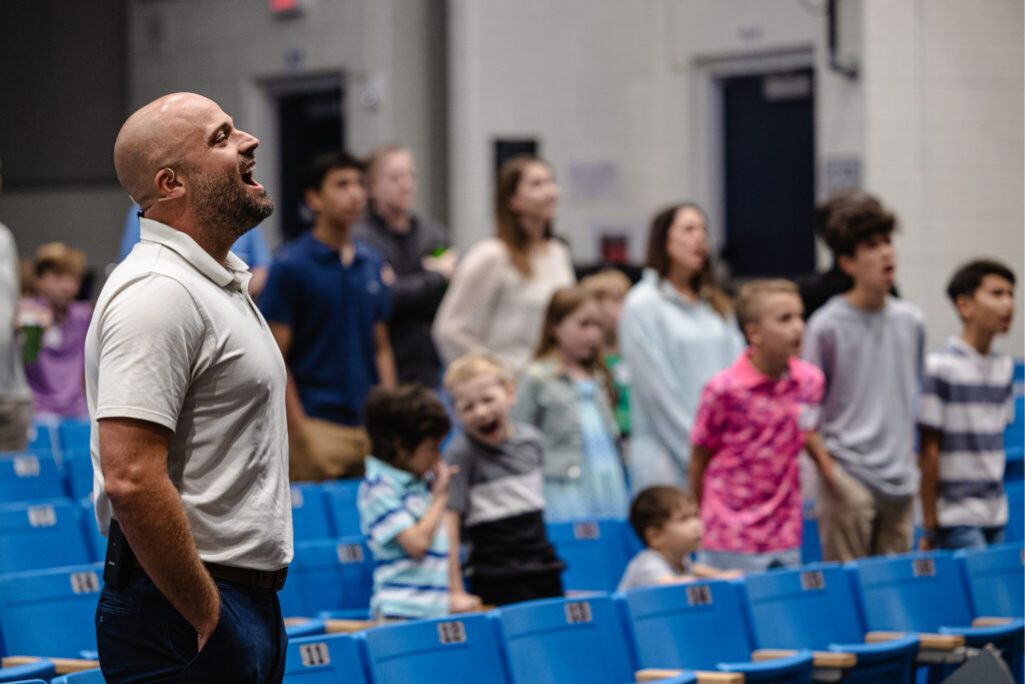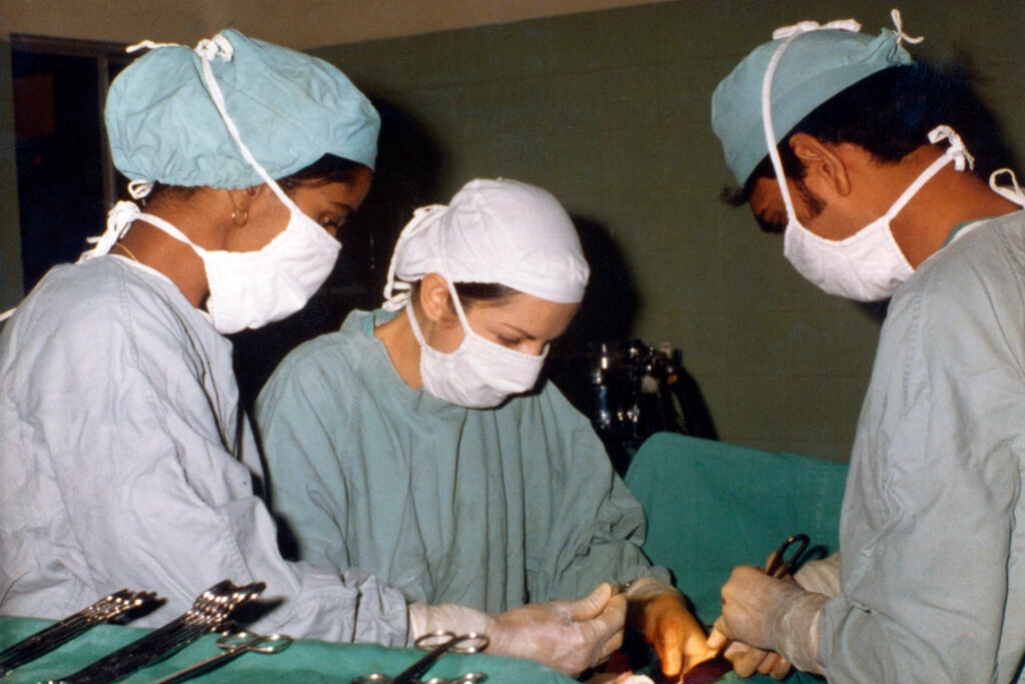
Greg Gibson and his family moved back to Washington, D.C., to plant Nations Church.
WASHINGTON (BP) — Greg Gibson had already planted one church in D.C., so he chuckled when his friend Clint Clifton called him three years ago and asked, “Do you think you have another church plant in you?”
But the more Gibson thought about Clifton’s passing comment, the more he couldn’t get it off his mind.
“God has always used moments like that through His people, where a seed gets planted in my heart that then starts to blossom and grow over time,” he shares.
Mere months after that phone call, Clifton was killed in a plane crash, and the Gibson family found themselves back in the D.C. area to attend his funeral. Sitting in a crowd of several hundred people who had been impacted by Clifton’s life and ministry, Gibson felt an overwhelming sense of void in the city he’d once called home.
“Clint had an amazing gift set and influence in D.C. with his ability to come alongside planters and train, galvanize and send them,” Gibson said, “so by no means did I think there was any one person who could fill his shoes, but I knew that enough of us needed to carry the baton.”
In the days that followed, the Gibson family began to feel an aching pull to return to D.C. to plant another church. So, the following summer, they packed yet another moving truck in Knoxville and moved back to Monument City, expectant for what God would do next.
The Gibsons’ Sending Church, Foothills Church in Knoxville, knew them as a church-planting family and were excited to partner with them in ministry again.
“When we moved here last August, I spent the first couple of months building a team doing a ton of personal evangelism and the ministry of invitation,” Gibson said.
The family opened their home for a weekly Bible study that grew to 50 people in a matter of months. Every Sunday evening, kids swarmed through their halls while adults gathered in the living room.
“The Bible study became the net. We were inviting everyone into it, and then out of the Bible study, we built our core team,” Gibson said. “Church planting is a team sport. If you’re planting on your own, there’s going to be deficiencies and blind spots in the church early on, so the first step is always to build a team.”
But building a team to plant a church in a fast-paced environment like D.C., where time often has the biggest premium in people’s lives, doesn’t come without challenges.
“It creates an interesting dynamic for churches and church planters, because people are ultimately going to give their time to something that will add value to their lives,” Gibson said.
Nations Church faced that challenge head on by offering a gospel-centered life purpose to the people they interacted with. As they introduced people in their city to God’s greater mission, they started to witness these goal-driven individuals get excited about the role they can play in expanding God’s kingdom.
“We’re seeing a lot of people come into our orbit who are saying, ‘I once had a mission. I was once former military. I was once working in the State Department, or whatever it might be. But now I have a greater mission,’” Gibson said.
Not long ago, Gibson shared with one such individual a message like the one Clint Clifton gave him three years ago in that phone call that he still can’t get out of his head.
“I shared with him that I could see him being an amazing church planter,” Gibson said. “And since then, he has this transformed belief in himself, and we’ve started meeting together every week for pastoral development.”
Today, Nations Church regularly sees 75 people engaged in services and activities, which are held weekly at a middle school in Louden County. The church welcomes people from all over the world, including Sri Lanka, Ukraine, Ethiopia, Korea, China, Columbia, Peru and Vietnam.
This summer, the church launched kids’ and student ministries to reach the next generation and started more life groups for adults. An entire family recently followed in believer’s baptism, and the church continues to grow.
“Our vision is to reach the nations by loving our neighbors,” Gibson said.
In a city as diverse as Washington, D.C., reaching the nations is a mission that feels close to home. That’s why Nations Church regularly invites international pastors ministering to ethnic groups in D.C. to share about their ministries with the congregation.
“If we can plant churches in Washington, D.C., I think we can also plant churches with different ethnic groups in Washington, D.C., and then maybe God will allow us to plant churches and help catalyze church-planting work in different places around the world,” Gibson said.
Just weeks after its public launch this past March, the church commissioned and sent its first overseas missionary to Warsaw, Poland, to work with Ukrainian refugees.
“We want to be a multiplying church,” said Gibson. “And our goal is to plant as many churches as God would allow locally and globally.”


